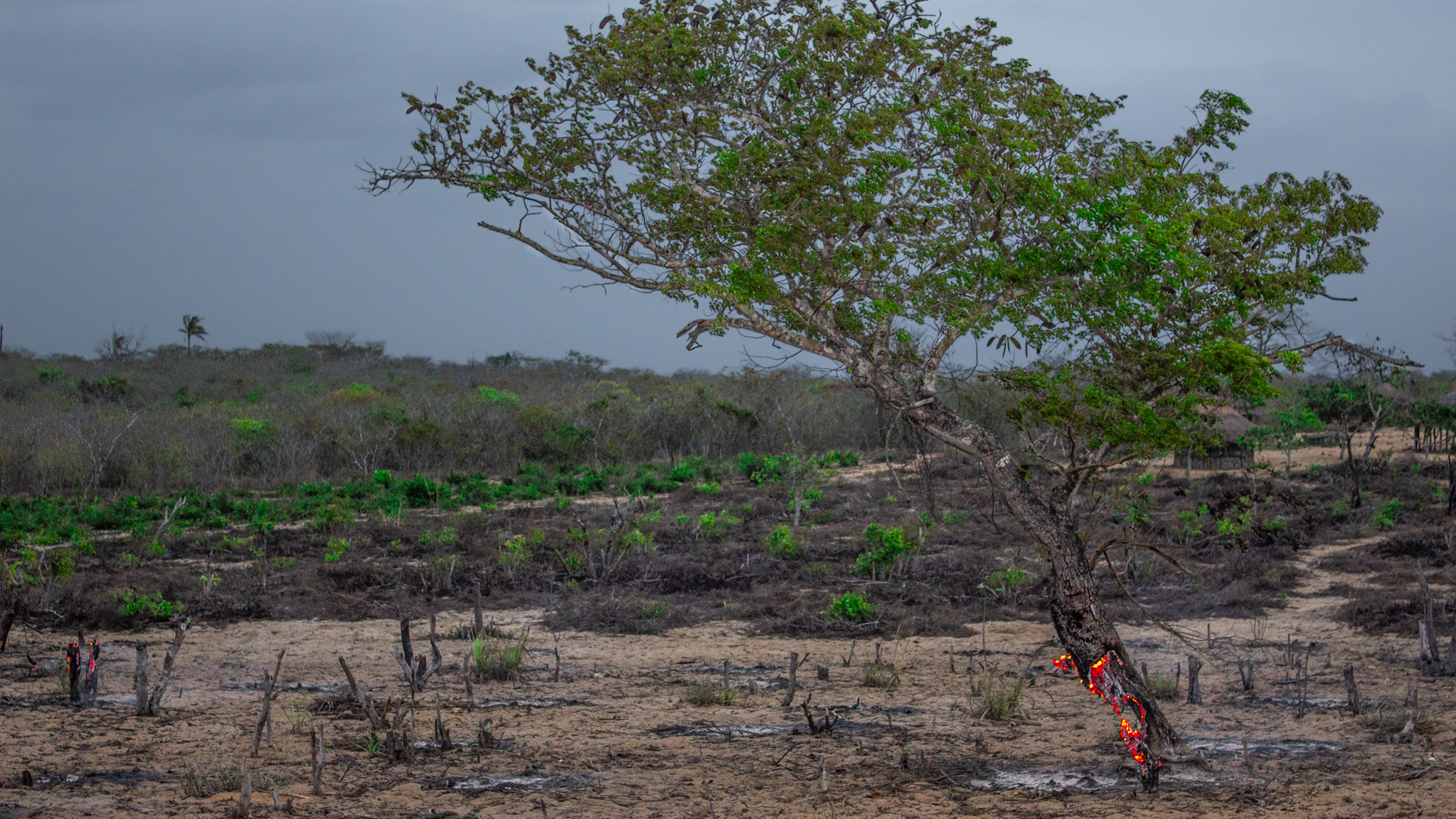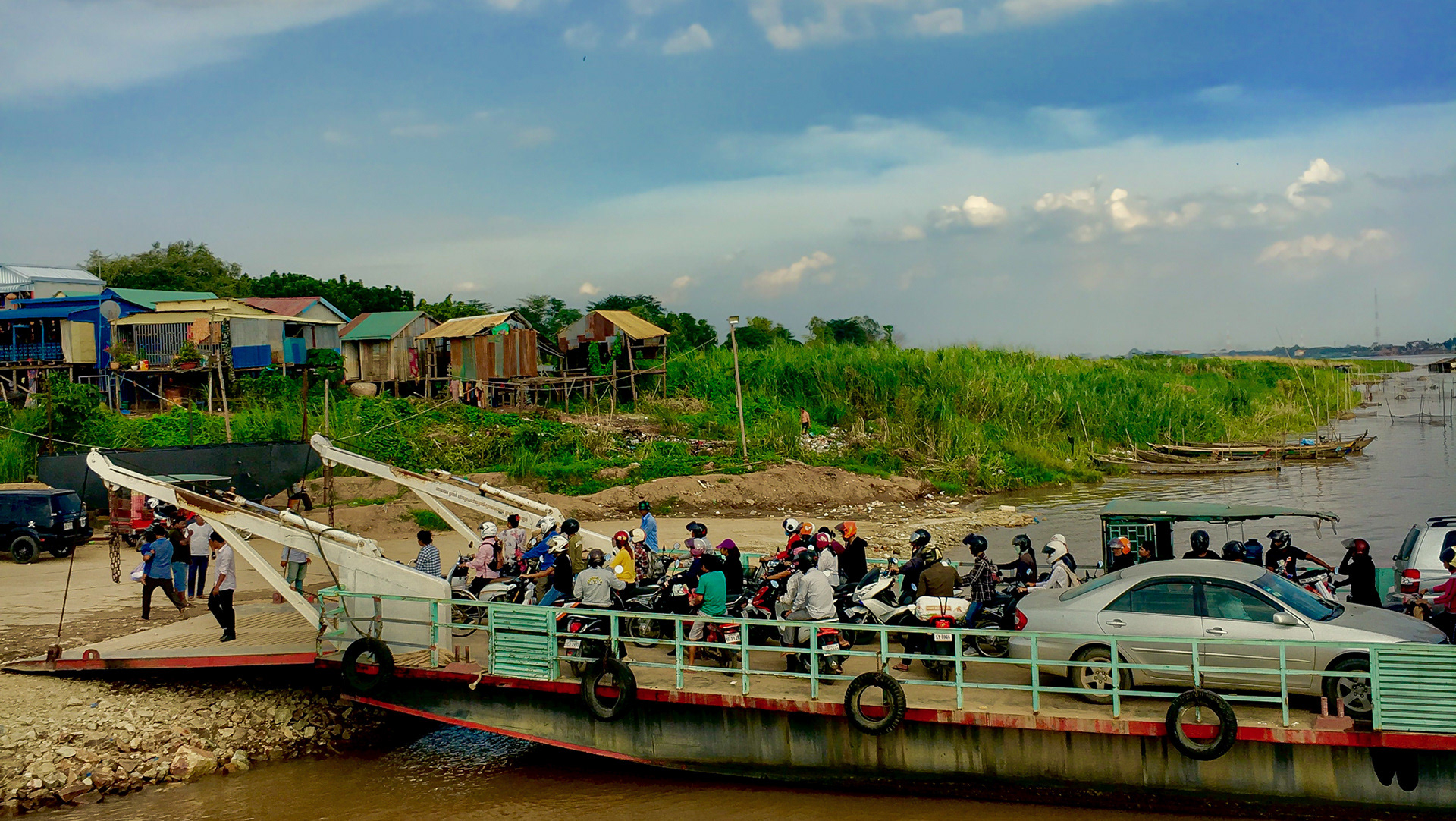The energy crisis is only one of the many issues that South Africa is facing: unemployment, poverty, inequality.
For about 15 years, the wealthiest country in the African continent has been affected by load-shedding, which involves scheduled power outages in different phases and areas, depending on the severity of the energy situation. The year 2023 set a “record”, with 332 days of load-shedding, meaning more than 400,000 minutes without electricity. This crisis does not only represent a significant challenge for the daily lives of citizens but also poses a substantial threat to the economic and political stability of South Africa.
The photo-reportage aims to explain the energy crisis and the impact of load-shedding in South Africa, specifically focusing on Cape Town as a case study and investigation, being one of the most “privileged” areas of the country, to show that the crisis affects everyone, albeit to varying degrees.
President Cyril Ramaphosa updating the nation on the energy crisis during a family meeting
Political and economic disasters often intertwine with natural catastrophes. South Africa finds itself in a region heavily affected by climate variability, frequently experiencing droughts, floods, and other extreme weather events. The frequency and intensity of these phenomena continue to rise due to climate change. Despite South Africa’s susceptibility to these issues, its geographical position also presents a wealth of natural resources for producing renewable and non-polluting energy.
Young activists from different organizations gathering together for the #PowerUp for Climate Justice outside the Cape Town Parliament
By delving into this detail, beyond South Africa’s paradoxical reality, one can fully comprehend the significant activism of youth organizations advocating for environmental and climate justice, all striving for radical change within their country. Youth activism in South Africa, with its so-called “changemakers”, arguably represents the only positive aspect amid the crisis the country has faced for over 15 years. These young individuals have grown up amidst energy crises and load-shedding, now integrated and normalized aspects of their lives. Figures like Thandile Chinyavanhu, a Greenpeace Africa activist, exude incredible trust in human capital, having frequently witnessed people coming together for a common goal.
A woman with tears of joy during the Springboks Victory Parade
The energy of South African citizens is so potent that even celebrations for the Springboks’ victory in the Rugby World Cup became moments of unity, support, motivation, and determination. This same vigor emanates from young organizations, as demonstrated by their decision to organize a demonstration on the morning of the Springboks’ celebration parade in Cape Town, achieving widespread participation and visibility, nonetheless. On November 3rd, the same demonstration occurred in many other countries’ cities, marking the commencement of the Power Up climate solutions campaign, highly active until December 12th during the United Nations global climate conference (COP8).
During load-shedding, most of the traffic lights do not work
In addition to driving change, South African citizens have had to find ways to better cope with the energy crisis and its effects, such as installing solar panels in their homes or using generators in shops. However, concerning generators, the environmental impact of their use appears to be overlooked, resulting in noise and air pollution.
One of the many petrol generators used by shops to keep running their business during load-shedding
One of the many buildings in Cape Town using solar panels
Despite this, it is crucial to closely understand the reality.
Denise in her bakery closed due to being unable to work
Denise Delight’s is a historic bakery in Sea Point, situated on the main street of the neighborhood for 30 years. Denise, like many other shop owners, cannot afford the expense of an independent generator to cope with the energy crisis in South Africa. Due to load-shedding, she has often been forced to delay orders from customers by hours or even days. Despite planning ahead in preparation, it’s difficult to keep the pastries perfectly preserved in turned-off refrigerators without electricity for at least two hours. Another challenge Denise will have to face is relocation. The building where her shop has always been will soon be demolished for renovations, and she’ll be compelled to move to the fourth floor of another building down the street. Unable to afford a generator for the refrigerator, she won’t be able to purchase one for the elevator in the new building either, so she won’t be able to easily accommodate customers even during load-shedding.
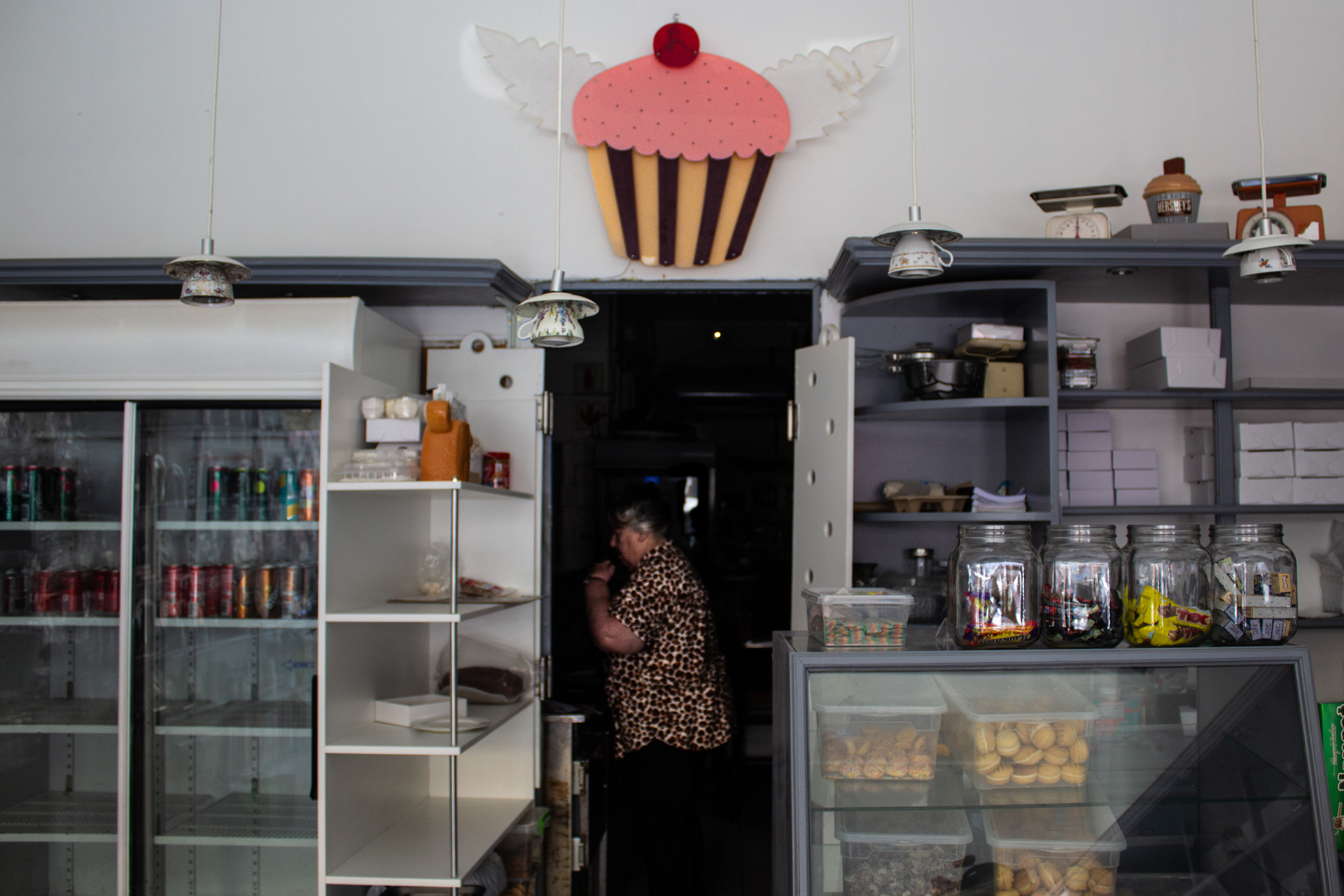
Denise waits in the dark for the electricity to come back to start working
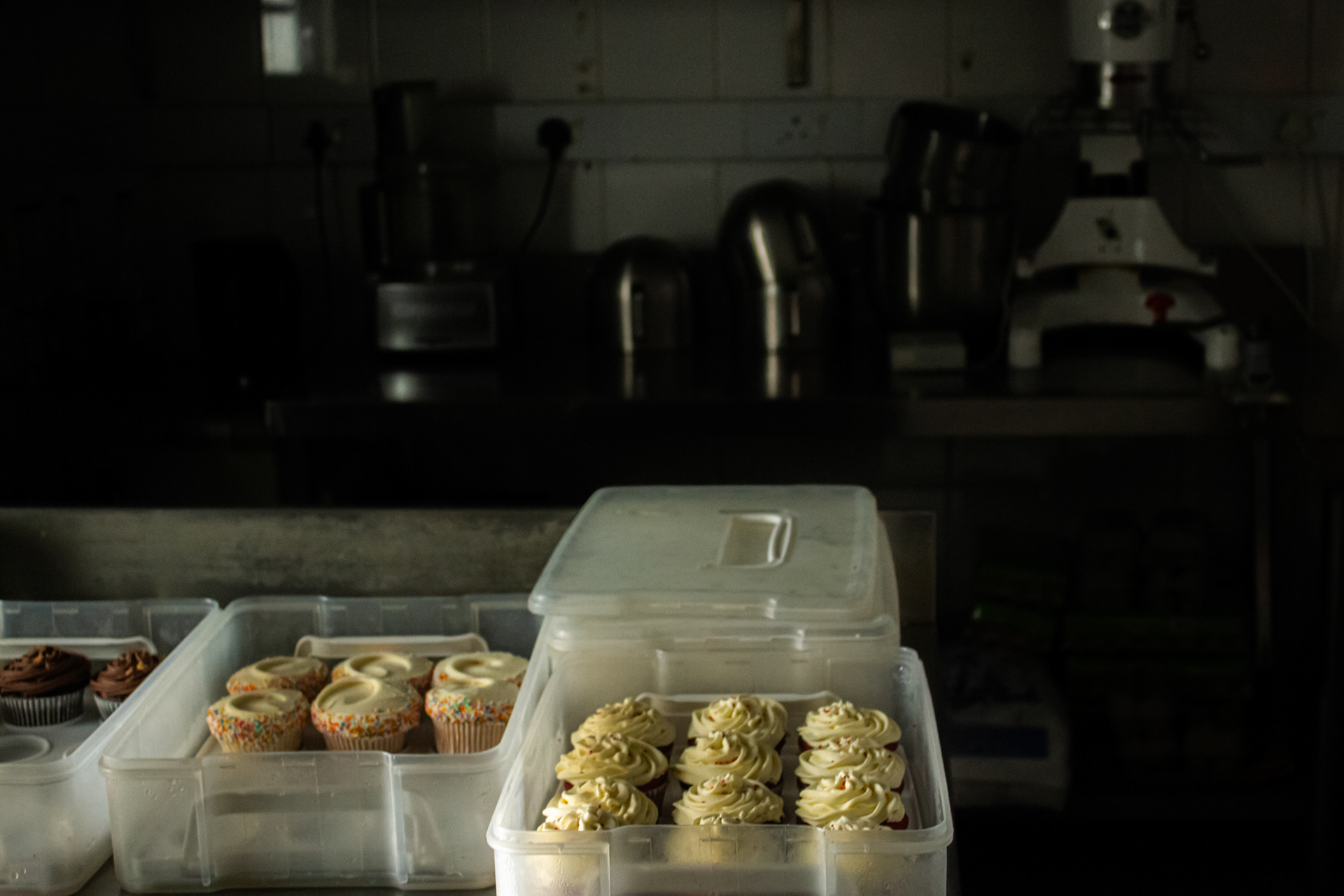
Some pastries prepared ahead of the morning load-shedding
Lessa Gordon in her laundry at a standstill due to the lack of electricity
Lessa Gordon opened Wash World in the Sea Point neighborhood in 1985 when she decided to purchase the laundromat with her husband. Since then, Lessa has never left her business or worked with a different staff. She has always been assisted by Lucy, Ruth, Mercy, and Joyce. Despite Wash World fame in the neighborhood and extensive experience, according to Lessa, the generator has never been a sustainable solution to the energy crisis in South Africa. During load-shedding, Wash World stops, and all Lessa and her staff can do is wait for the electricity to return. Over the years, Lessa has also opened three other branches of the laundromat in Cape Town, but she recently had to sell all three due to the energy crisis. Wash World “offers same-day laundry service depending on load-shedding”, as stated on the store sign and other notices inside. Indeed, Lessa has often had to cancel some orders, especially those from hotels and guest houses that cannot be flexible with schedules. Lessa specifically stated that there is nothing more she can do; load-shedding is beyond her control, and that’s why she “sort life out one load at a time”.
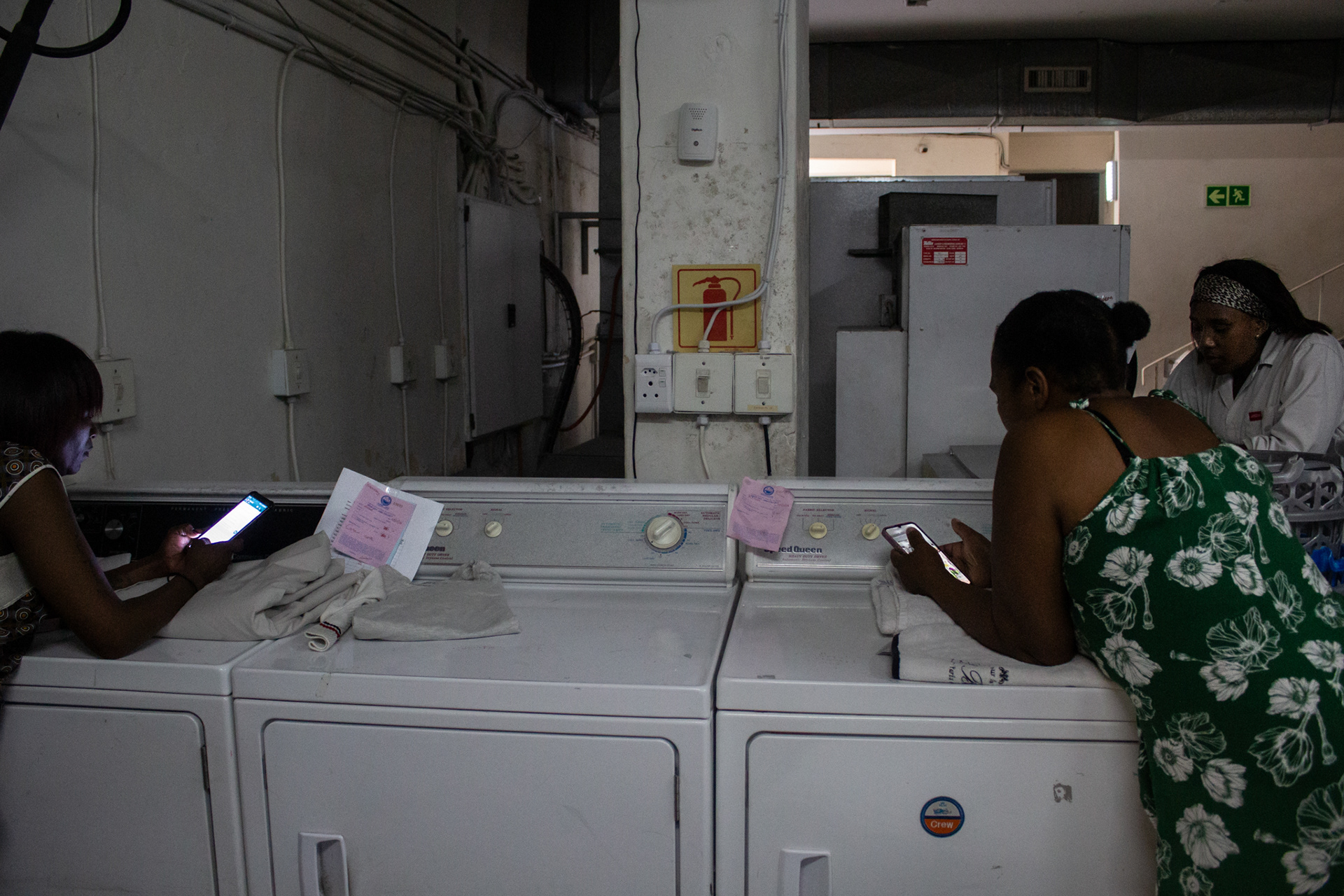
Unable to work during load-shedding, the staff spends time on the phone
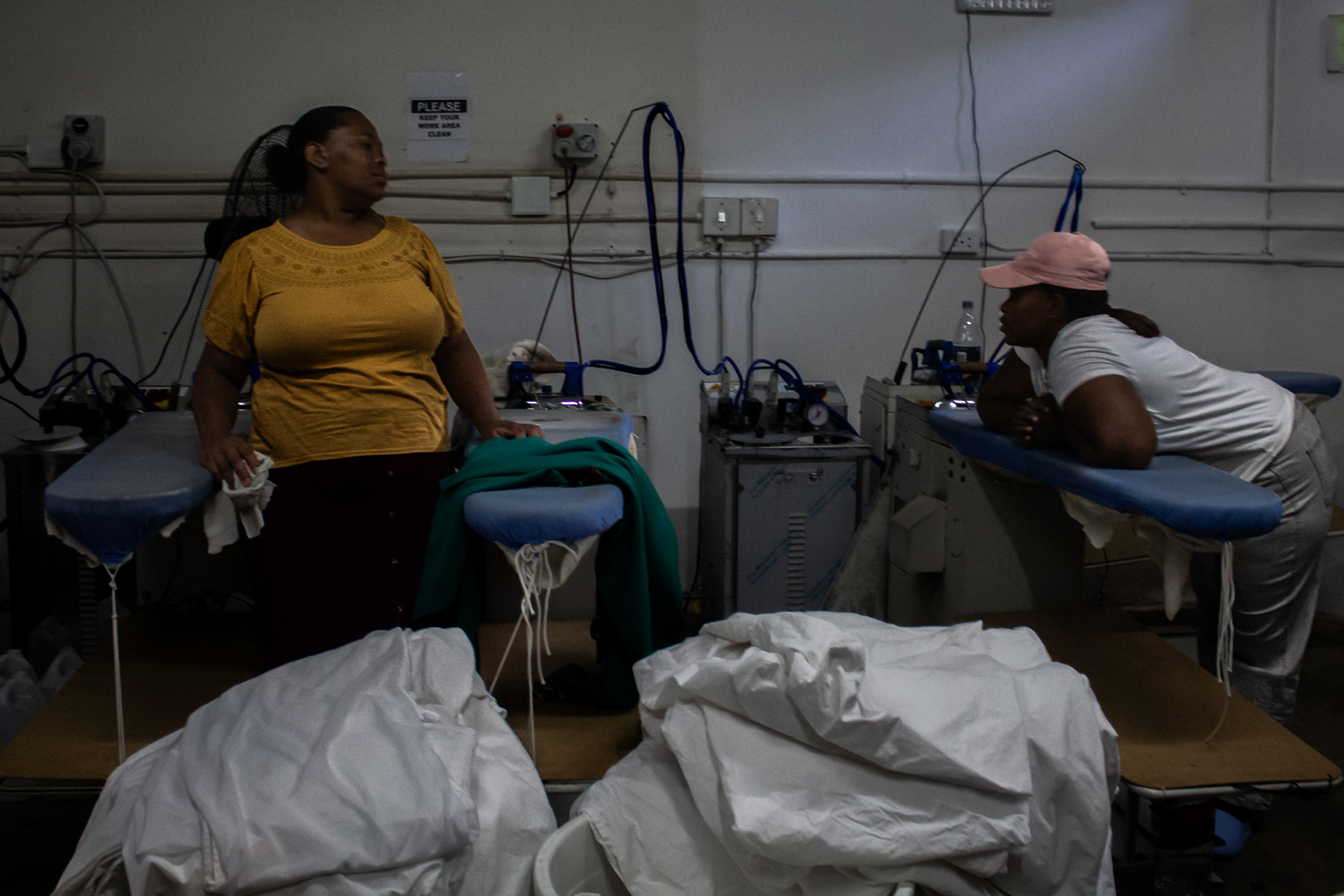
The Wash World staff is at a standstill during load-shedding
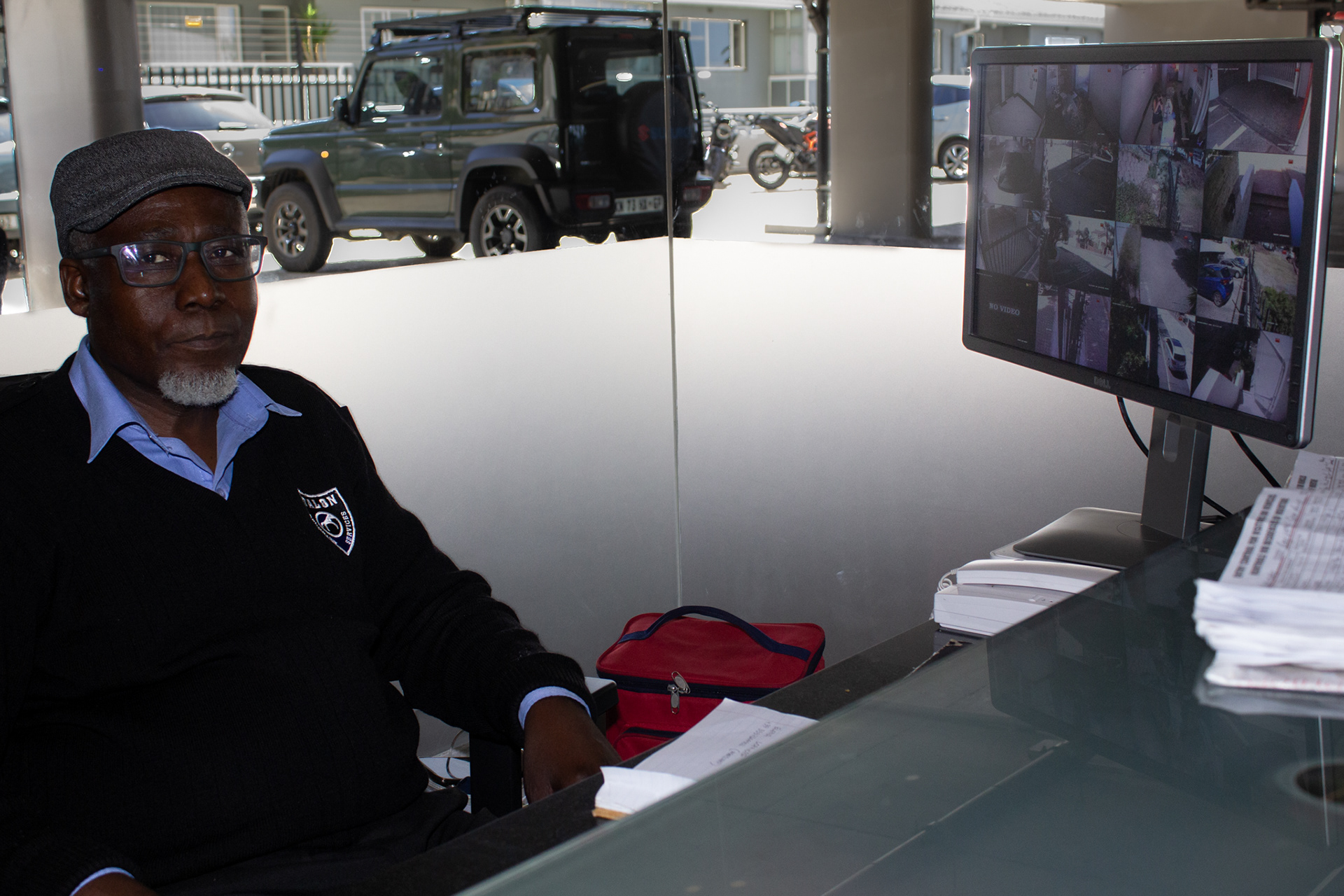
Patrick Ndawo posing at his workstation
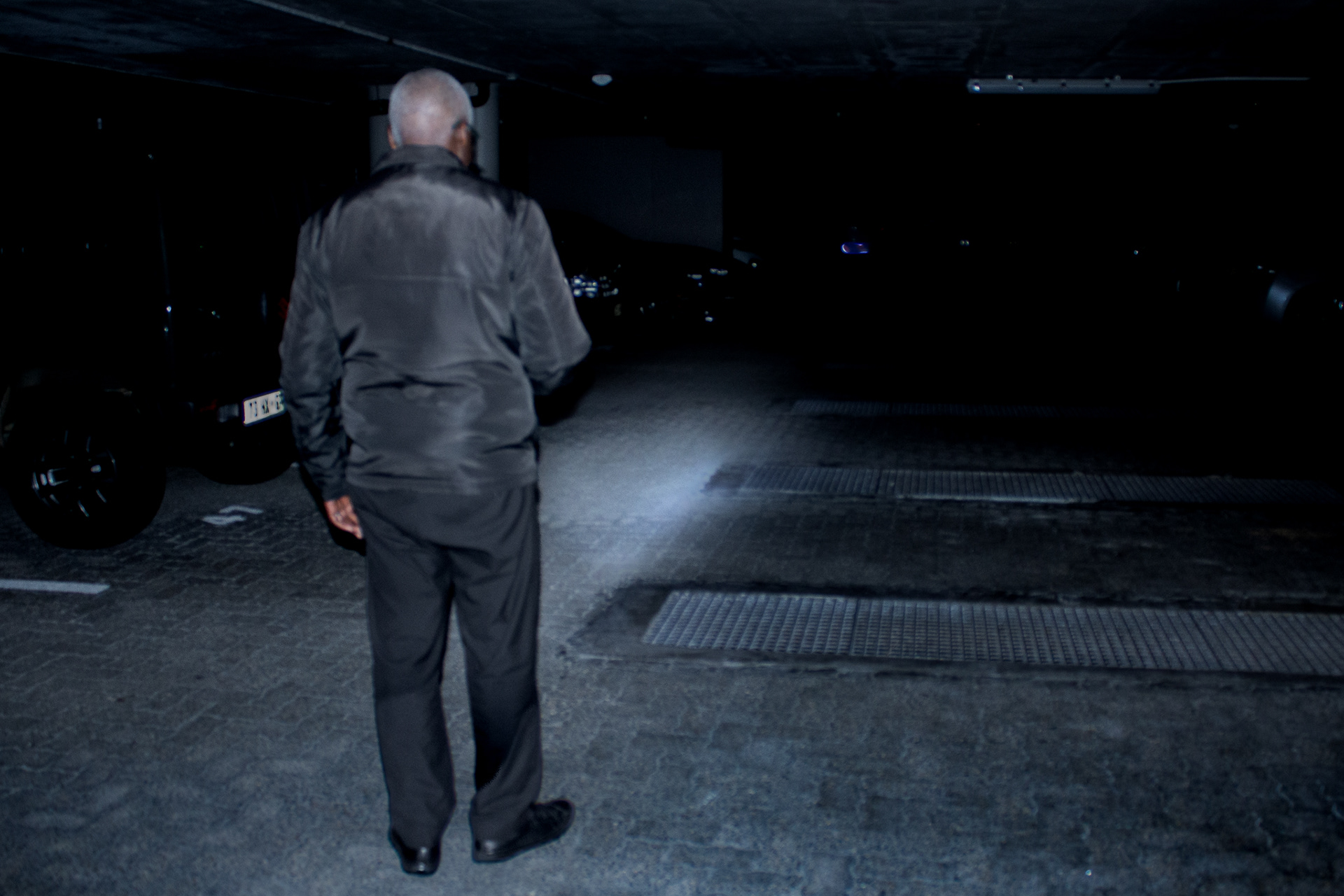
Patrick Ndawo surveys the building during load-shedding
Patrick Ndawo works as a security guard in a condominium in Sea Point, one of the most affluent neighborhoods in Cape Town, South Africa. In 2023 alone, Patrick was attacked and robbed three times on his way to work. He resides in Khayelitsha, one of the world’s largest slums and arguably one of the most dangerous townships in the municipality of Cape Town. Areas like these are among the hardest hit by the energy crisis in South Africa, and one of the most severe consequences is the issue of security. The occasions when Patrick was robbed coincided with his night shift at work and during load-shedding, thus occurring in a dark scenario that made even an experienced security guard like him vulnerable.
Sea Point, one of the most affluent neighborhoods in Cape Town, in darkness during load-shedding
There is a light at the end of the tunnel, but it’s challenging to predict when South Africa will finally reach it.


